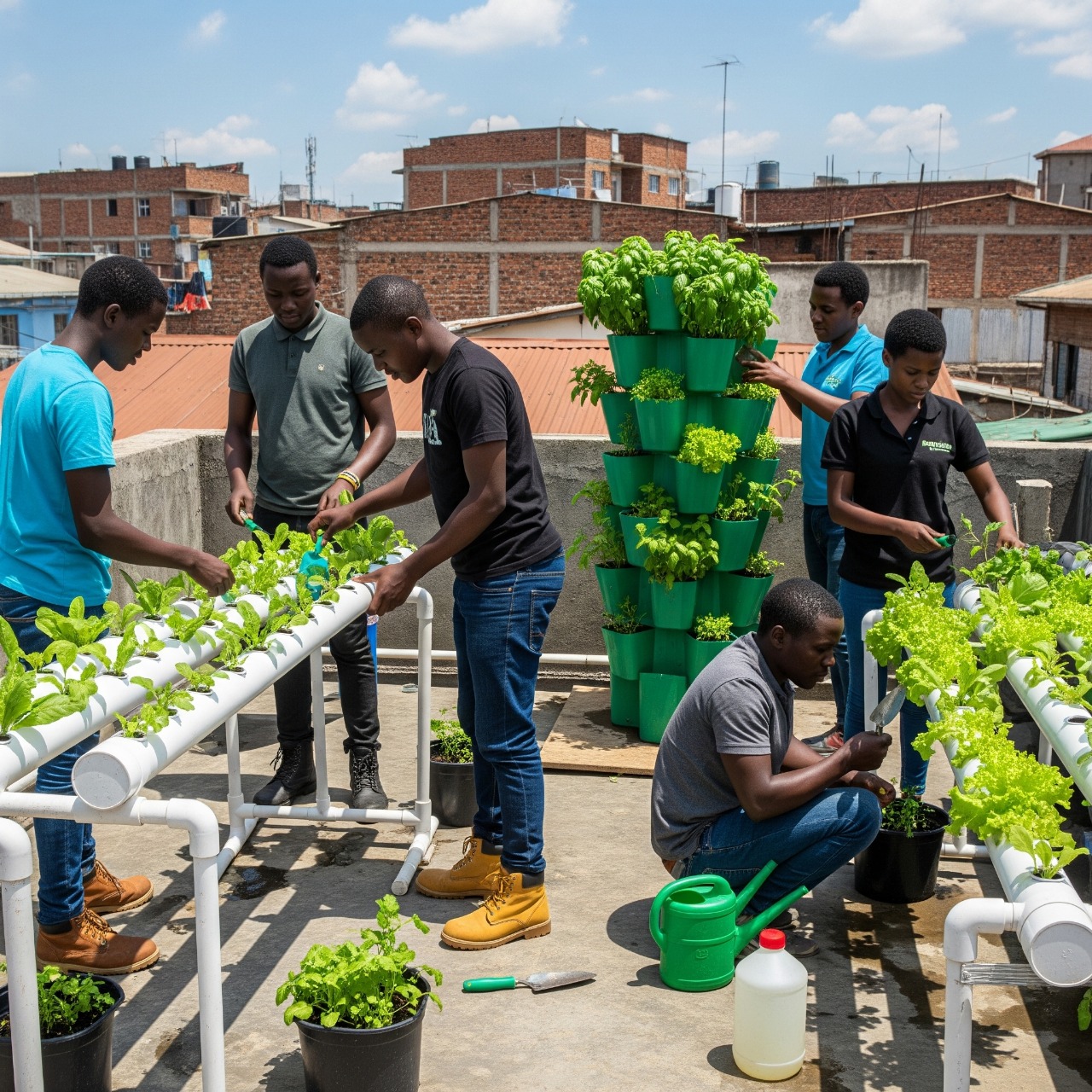CCCAM is preparing to implement a project focused on promoting smart hydroponic farming in urban and peri-urban areas of Embu. This initiative will involve the deployment of 50 modular hydroponic kits. Each kit will be equipped with sensors that will monitor key environmental factors such as pH, water levels, temperature, and humidity. These sensors will feed real-time data into a cloud dashboard and a user-friendly mobile application, enabling efficient and remote management of the farming systems. The core purpose of the project is to provide a sustainable and resilient food production method that will address critical issues in the region, including urban food insecurity, climate-related stress, and a lack of employment opportunities for youth.
A key component of this effort will be the training and empowerment of youth entrepreneurs. One hundred young individuals will be trained over a six-month period in system assembly, data analysis, and the development of sustainable business models. During this time, the project will track target metrics of at least 20 Kgs of vegetable produce per kit per month and a 60% reduction in water use compared to traditional farming. This hands-on training will aim to create new green-tech entrepreneurship opportunities and reduce youth unemployment in Embu County, which is currently above the national average.
The project will also prioritize green sustainability by significantly reducing water consumption and minimizing the need for chemical pesticides and herbicides, which will lead to healthier produce and a reduced environmental impact. Furthermore, the project will foster innovation by integrating local agricultural knowledge with advanced hydroponic technology and by integrating AI for real-time disease diagnosis, even with limited internet connectivity.
By generating empirical data on the effectiveness of urban hydroponics, the project will be used to inform and influence local urban agriculture policies. The outcomes will underpin a jointly authored policy brief with the Embu County Government and the Ministries of Environment and ICT, with the goal of shaping formal guidelines for urban hydroponic farming under Kenya’s Climate Smart Agriculture Framework. The project is in the process of being implemented, and we are seeking partnerships to expand our reach and impact, ultimately contributing to national discussions on sustainable food production and environmental regulations.

